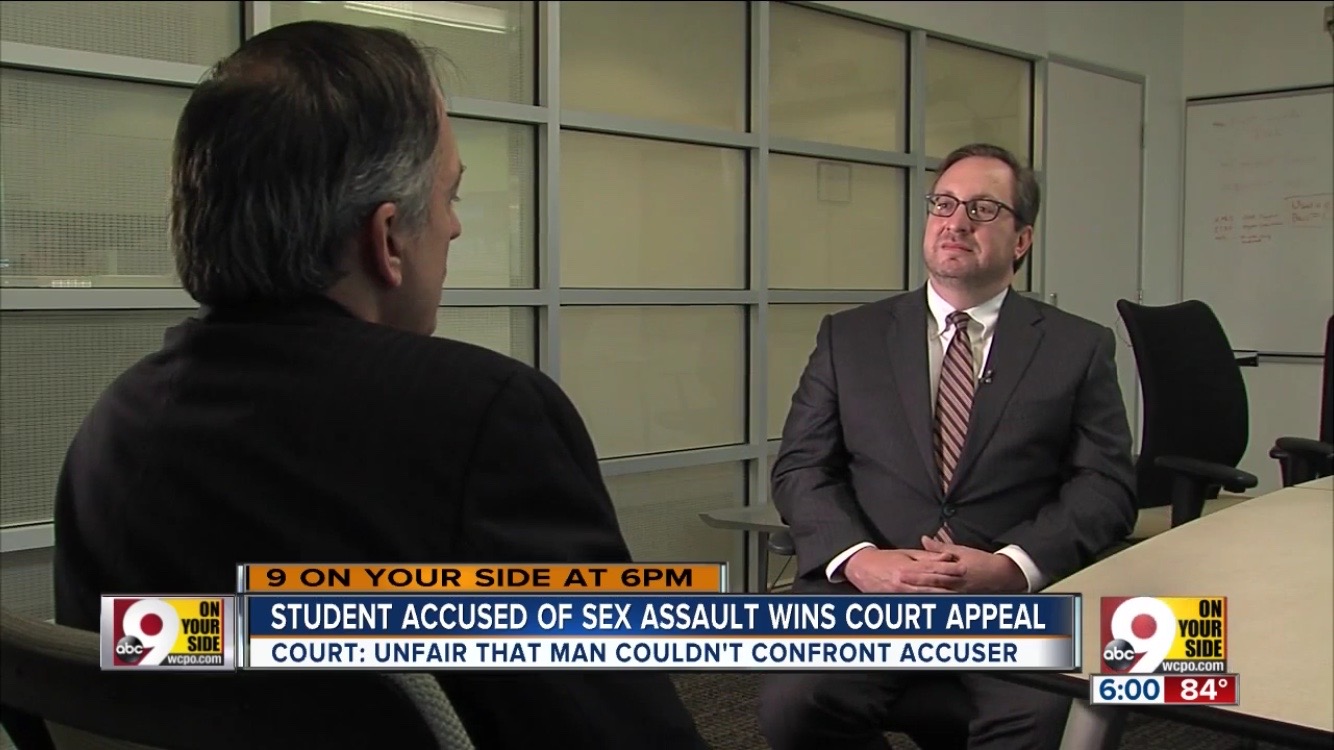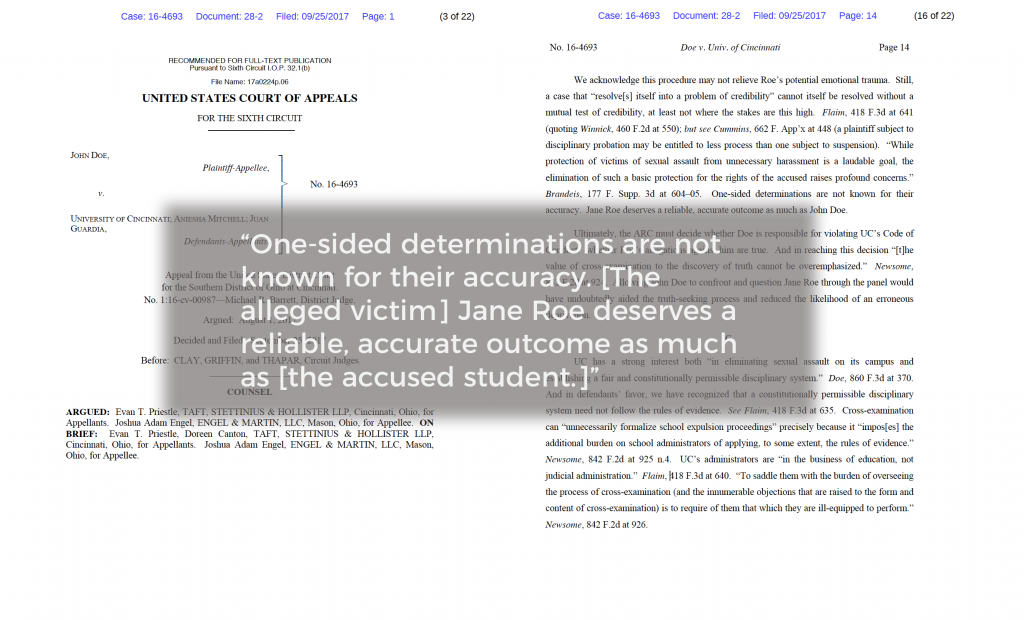

The United States Sixth Circuit Court of Appeals has affirmed a preliminary injunction obtained by Engel & Martin, LLC on behalf of a University of Cincinnati graduate student accused of sexual assault.
The court agreed that a graduate student male student who argues he was denied his due process right to confront a female student accusing him of sexual assault. In this case, the student, known as “John Doe” was suspended even though his accuser, referred to as “Jane Roe” never appeared at the disciplinary hearing.
Read the opinion here: Doe-UC-II-Opinion.pdf
The court said:
Still, a case that “resolve[s] itself into a problem of credibility” cannot itself be resolved without a mutual test of credibility, at least not where the stakes are this high. While protection of victims of sexual assault from unnecessary harassment is a laudable goal, the elimination of such a basic protection for the rights of the accused raises profound concerns. One-sided determinations are not known for their accuracy. Jane Roe deserves a reliable, accurate outcome as much as John Doe.
Ultimately, the [Hearing Panel] must decide whether Doe is responsible for violating UC’s Code of Conduct: whether Roe’s allegations against him are true. And in reaching this decision “[t]he value of cross-examination to the discovery of truth cannot be overemphasized.” Allowing John Doe to confront and question Jane Roe through the panel would have undoubtedly aided the truth-seeking process . . . (citations omitted).
The Washington Post has coverage:
The ruling comes after Friday’s announcement that the Trump administration is rolling back Obama administration policy on investigating college sexual assaults. Education Secretary Betsy DeVos has said Obama’s policy had been unfairly skewed against those accused of assault.
Joshua Engel was quoted in a number of articles describing the decision, including the Cincinnati Enquirer:
“What is most important as the Department of Education reconsiders the guidance provided to schools is the Court’s recognition that due process is in the interest of both the accused and the accuser. In this case, the court found that the ability to confront one’s accuser is important not merely because it aids in the defense by an accused student, but because it allows the school to better get at the truth of accusations.”
Related: Engel Statement of Department of Education Policy Changes
WCPO interviewed Joshua Engel:
